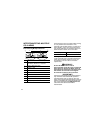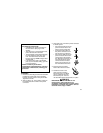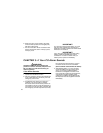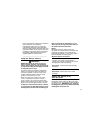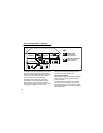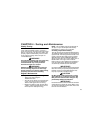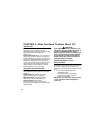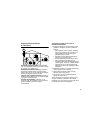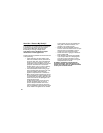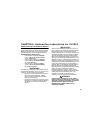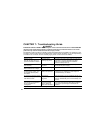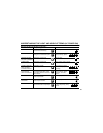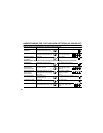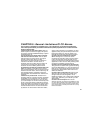
22
How Can I Protect My Family?
A CO alarm is an excellent means of protection.
It monitors the air and sounds a loud alarm
before Carbon Monoxide levels become
threatening for average, healthy adults.
A CO alarm is not a substitute for proper
maintenance of home appliances.
To help prevent CO problems and reduce the risk
of CO poisoning:
• Clean chimneys and flues yearly. Keep
them free of debris, leaves, and nests for
proper air flow. Also, have a professional
check for rust and corrosion, cracks, or
separations. These conditions can prevent
proper air movement and cause back-
drafting. Never “cap” or cover a chimney
in any way that would block air flow.
• Test and maintain all fuel-burning equip-
ment annually. Many local gas or oil com-
panies and HVAC companies offer
appliance inspections for a nominal fee.
• Make regular visual inspections of all fuel-
burning appliances. Check appliances for
excessive rust and scaling. Also check the
flame on the burner and pilot lights. The
flame should be blue.
A yellow flame means fuel is not being
burned completely and CO may be
present. Keep the blower door on the
furnace closed. Use vents or fans when
they are available on all fuel-burning appli-
ances. Make sure appliances are vented
to the outside. Do not use portable/out-
door grills or barbecue indoors, or in
garages or on screen porches.
• Check for exhaust backflow from CO
sources. Check the draft hood on an oper-
ating furnace for a backdraft. Look for
cracks on furnace heat exchangers.
• Check the house or garage on the other
side of shared wall.
• Keep windows and doors open slightly.
If you suspect that CO is escaping into
your home, open a window or a door.
Opening windows and doors can signifi-
cantly decrease CO levels.
In addition, familiarize yourself with the
enclosed checklist, read this manual in its
entirety, and make sure you understand what
to do if your CO alarm sounds.



